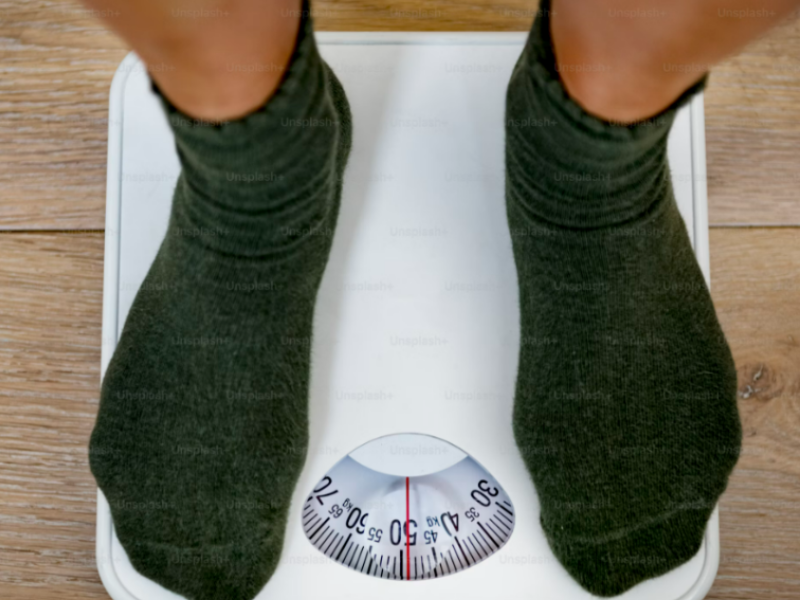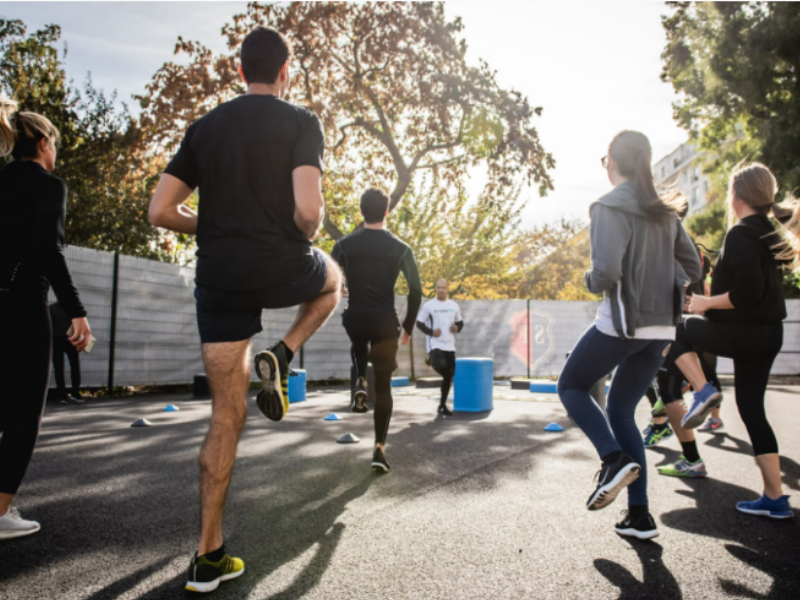


Losing 15 pounds in 2 weeks is an ambitious goal that requires discipline, strategic planning, and a commitment to a healthier lifestyle. While achieving significant weight loss in such a short time frame is challenging, it is possible with the right combination of calorie deficit, regular exercise, and healthy habits. Read on to find effective strategies that can help you lose weight quickly while prioritizing your overall well-being and avoiding serious health risks.
Understanding Rapid Weight Loss

To lose 15 pounds in 2 weeks, you must create a significant daily caloric deficit. Since one pound of fat equals approximately 3,500 calories, losing 15 pounds in 14 days requires a deficit of 52,500 calories—or roughly 3,750 calories per day. This can be achieved by burning calories through exercise and consuming fewer calories than your body burns [1].
While rapid weight loss can deliver improved energy levels and kickstart your weight loss journey, it’s crucial to focus on healthy weight loss practices to avoid muscle loss, nutritional deficiencies, or other health concerns [2].
With a clear understanding of weight loss basics, it’s time to take action. While losing 15 pounds in 2 weeks may seem challenging, a balanced diet, consistent exercise, and a focus on overall health make it achievable. The following sections provide practical strategies to help you reach your goal safely and build sustainable habits for long-term success.
Optimize Your Diet for Maximum Fat Loss
Your diet plays a central role in losing fat and achieving significant weight loss. Here’s how to make your meals work for you:
Create a Calorie Deficit
- Calculate your current caloric intake based on your current weight, age, and activity level. Use tools like calorie calculators to determine how many calories your body needs to maintain its weight [2].
- Consume 1,200–1,500 calories daily, depending on your body composition and activity level, to create a substantial caloric deficit.
Focus on Lean Proteins
- Incorporate lean proteins like chicken breast, turkey, fish, egg whites, and tofu to help preserve lean muscle mass and keep you full [3].
- Protein intake is essential for maintaining muscle mass during rapid weight loss.
Include Nutrient-Dense Foods
- Prioritize natural foods such as leafy greens, broccoli, cucumbers, and bell peppers for their low-calorie and high-fiber content.
- Add fruits like berries and apples for natural sweetness and additional fiber [3].
Reduce Processed Foods and Junk Food
- Avoid processed foods, sugary snacks, and unhealthy foods like chips and fast food that contribute to weight gain.
- Replace refined grains with whole grains like quinoa and oats in small portions [3].
Incorporate Healthy Fats
- Include healthy fats from sources like avocados, nuts, seeds, and olive oil to improve satiety and overall health.
Try a Low-Carb Diet
- A low carb diet can help reduce water weight quickly and accelerate fat loss. Limit starchy foods like bread, rice, and pasta [2].
Avoid Extreme Calorie Restriction
- Avoid crash diets or extreme calorie restriction, as these can lead to nutritional deficiencies, fatigue, and slowed metabolism [2].
Exercise Routine for Rapid Weight Loss

Regular exercise is crucial for burning calories and building lean muscle mass. Combine cardiovascular exercise, strength training, and high intensity interval training (HIIT) to maximize your efforts.
Cardiovascular Exercise
- Engage in moderate intensity exercise or aerobic exercises like running, cycling, swimming, or brisk walking for 45–60 minutes daily.
- Cardiovascular exercise not only burns calories but also improves heart health and stamina [4].
Strength Training
- Perform strength training exercises 3–4 times per week to maintain muscle mass and boost your resting metabolic rate.
- Focus on bodyweight exercises like squats, lunges, push-ups, and planks to build lean muscle mass without equipment [4].
High Intensity Interval Training (HIIT)
- Incorporate HIIT workouts to maximize fat burning in a short time. Alternate between intense exercise (e.g., sprinting) and recovery periods (e.g., walking) for 20–30 minutes.
- HIIT can help burn more calories in less time while preserving muscle [4].
Stay Hydrated and Manage Stress
Staying hydrated and managing stress are essential for effective weight loss. Drinking enough water supports digestion, reduces water retention, and helps control hunger, while replacing sugary drinks with water or green tea can cut unnecessary calories. Managing stress through techniques like meditation, yoga, or deep breathing prevents cortisol spikes that can lead to weight gain. Prioritizing these habits not only aids in weight loss but also improves overall well-being.
Hydration
- Drink at least 8–10 glasses of water daily to reduce water retention, support your digestive system, and control hunger.
- Replace sugary drinks with green tea or herbal teas to boost metabolism [5].
Stress Management
- High stress levels can lead to weight gain through increased cortisol production. Practice deep breathing, yoga, or meditation to manage stress and maintain focus on your goals [5].
Adequate Sleep
- Adequate sleep is essential for mental health, recovery, and appetite regulation. Aim for 7–9 hours of sleep nightly to avoid fatigue and overeating [5].
Avoid Health Risks of Extreme Weight Loss
Rapid weight loss can pose health risks if not done properly, including nutritional deficiencies [1], fatigue, muscle loss [3], and an increased risk of gallstones. Extreme methods like severe calorie restriction or fad diets [5]can also strain the heart and disrupt metabolism. Additionally, rapid weight loss may lead to unhealthy eating habits and increased stress. To minimize risks, focus on a balanced approach with a nutrient-dense diet, regular exercise, and adequate rest, ensuring safe and sustainable progress.
Conclusion
Losing 15 pounds in 2 weeks requires dedication, a caloric deficit, and a strategic approach to diet and exercise. Focus on nutrient-dense foods, regular exercise, and stress management to achieve your goals while maintaining your overall well-being. Avoid extreme weight loss methods that can harm your health, and prioritize building habits that support sustainable weight loss. With commitment and the right plan, you can make significant progress in your weight loss journey and improve your body composition and mental health for the long term. For more useful tips on diet and exercise, check out the JustFit app!
How can I avoid regaining weight after rapid weight loss?
What role does water play in rapid weight loss?
How can I maintain my results after losing 15 pounds?
What foods should I avoid to lose weight fast?
Is it safe to lose 15 pounds in 2 weeks?
Centers for Disease Control and Prevention (CDC). (n.d.). Physical Activity and Your Weight and Health. [online] Available at: https://www.cdc.gov/healthy-weight-growth/physical-activity/index.html
Centers for Disease Control and Prevention (CDC). (n.d.). Steps for Losing Weight. [online] Available at: https://www.cdc.gov/healthy-weight-growth/losing-weight/index.html
Centers for Disease Control and Prevention (CDC). (n.d.). Tips for Maintaining Healthy Weight. [online] Available at: https://www.cdc.gov/healthy-weight-growth/about/tips-for-balancing-food-activity.html
Mayo Clinic. (n.d.). Counting Calories: Get Back to Weight-Loss Basics. [online] Available at: https://www.mayoclinic.org/healthy-lifestyle/weight-loss/in-depth/calories/art-20050999
Mayo Clinic. (n.d.). Exercise for Weight Loss: Calories Burned in 1 Hour. [online] Available at: https://www.mayoclinic.org/healthy-lifestyle/weight-loss/in-depth/exercise/art-20050999





